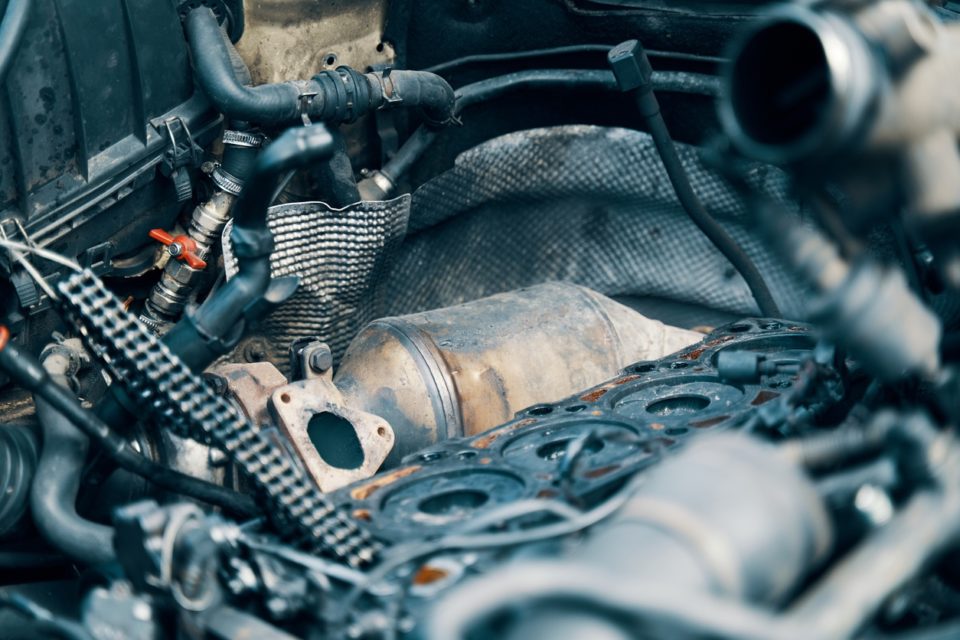Modern vehicles are equipped with a range of sophisticated technologies aimed at improving performance, efficiency, and environmental impact. One of these technologies is the Diesel Particulate Filter (DPF), a critical component in diesel engines that plays a vital role in reducing harmful emissions. To maintain optimal engine performance and fuel efficiency, it’s essential to understand the importance of regular DPF cleaning. In this article, we’ll delve into the significance of a clean DPF, the consequences of neglecting it, and the best practices for maintaining your vehicle’s DPF system.
Understanding the Diesel Particulate Filter (DPF)
The Diesel Particulate Filter is designed to trap and remove soot particles and other harmful pollutants from the exhaust gases of diesel engines. Over time, these particles accumulate within the DPF, leading to a reduction in exhaust flow and overall engine efficiency. To prevent this buildup from causing problems, it’s crucial to ensure the DPF remains clean.
The Importance of a Clean DPF
Optimal Engine Performance: A clean DPF allows for better airflow through the exhaust system, which helps the engine “breathe” properly. Improved airflow results in more efficient combustion, leading to better engine performance, increased horsepower, and torque.
Fuel Efficiency: When the DPF is clogged with soot and particulates, the engine has to work harder to expel exhaust gases. This extra effort consumes more fuel, causing a decline in fuel efficiency. Regular DPF cleaning helps maintain optimal fuel consumption.
Emission Reduction: The primary purpose of the DPF is to reduce harmful emissions. A clogged DPF can’t effectively filter exhaust gases, leading to increased emissions of pollutants such as carbon monoxide and nitrogen oxides. Keeping the DPF clean ensures your vehicle remains environmentally friendly.
Consequences of Neglected DPF Cleaning
Failing to clean the DPF at regular intervals can have several negative consequences:
Reduced Power: A clogged DPF restricts exhaust flow, which can result in decreased engine power and slower acceleration.
Increased Maintenance Costs: Neglecting DPF cleaning can lead to the need for more frequent and costly maintenance, such as turbocharger or engine repairs.
Deteriorated Fuel Economy: A clogged DPF forces the engine to burn more fuel, leading to lower miles per gallon and increased fuel expenses.
Excessive Regenerations: When the DPF is clogged, the vehicle’s computer system initiates more frequent regeneration cycles, which can strain the engine and exhaust components.
Best Practices for DPF Maintenance
Follow Manufacturer Recommendations: Consult your vehicle’s manual for recommended DPF cleaning intervals. Manufacturers typically provide guidelines based on factors such as mileage and driving conditions.
Regular Driving: Frequent short trips and stop-and-go driving can lead to incomplete DPF regeneration. To prevent this, take your vehicle for occasional longer drives on highways or open roads.
Quality Fuel: Using high-quality diesel fuel with low sulfur content can help reduce soot accumulation in the DPF.
Avoid Additives: While some fuel additives claim to clean the DPF, they might not be as effective as proper maintenance and could even damage the filter. Stick to manufacturer-recommended cleaning methods.
Professional Cleaning: When the DPF’s soot buildup is significant, consider professional cleaning services. These services use specialized equipment to clean the DPF thoroughly without causing damage.
The Diesel Particulate Filter plays a crucial role in maintaining engine performance, fuel efficiency, and emission control in diesel vehicles. Regular DPF cleaning is essential to prevent the negative consequences of clogging, ensuring your vehicle continues to operate smoothly while minimizing its impact on the environment. By following the manufacturer’s recommendations and adopting best practices for DPF maintenance, you can enjoy a cleaner, more efficient, and longer-lasting diesel engine.

